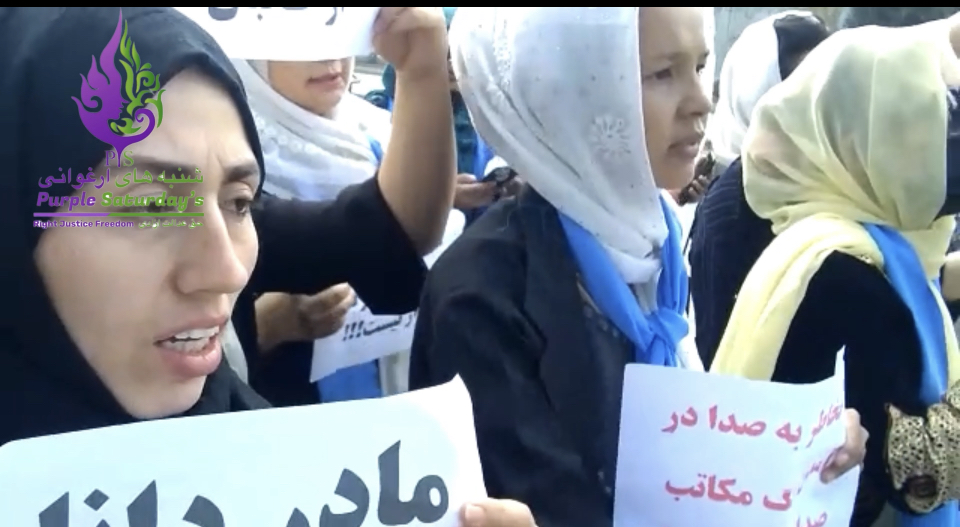The main goal of today’s demonstration of women and girls of the purple Saturdays movement was to open schools and universities for women and girls
For 555 long days, the girls of Afghanistan have been deprived of their basic right to education. Under the rule of the Taliban, the education of girls has been banned, leaving them with no access to schools or any form of learning. This is a gross violation of their human rights and a setback for the progress of the country.
Education is a fundamental right of every individual, regardless of gender, race, or religion. It is a tool that empowers individuals, promotes equality, and contributes to the development of a society. However, the Taliban’s extremist ideology sees education as a threat to their power and control. They believe that educating girls goes against their strict interpretation of Islam and that women should remain in their homes, restricted from any form of public life.
The consequences of this ban on girls’ education are devastating. It denies them the opportunity to develop their skills and talents, hindering their potential to contribute to their families, communities, and the country’s progress. It also perpetuates gender inequality, denying girls the chance to achieve their dreams and fulfill their aspirations.
Moreover, the ban on girls’ education is a significant setback for Afghanistan’s development. Education is a crucial factor in the economic growth and stability of a country. A lack of education can lead to poverty, unemployment, and social unrest. The Taliban’s ban on girls’ education will have long-term consequences for Afghanistan’s economy and social fabric.
The international community must take action to ensure that the rights of Afghan girls are protected. Diplomatic pressure and economic sanctions should be imposed on the Taliban to force them to lift the ban on girls’ education. Humanitarian aid should be provided to support the education of Afghan girls, including the establishment of schools and the training of teachers.
In conclusion, the ban on girls’ education in Afghanistan is a grave violation of human rights and a hindrance to the country’s progress. It is crucial that the international community takes action to ensure that Afghan girls have access to education and the opportunity to fulfill their potential. Education is the key to a brighter future for Afghanistan, and it must not be denied to half of its population.
The writer: Aisha, is an women’s and children’s rights activist

